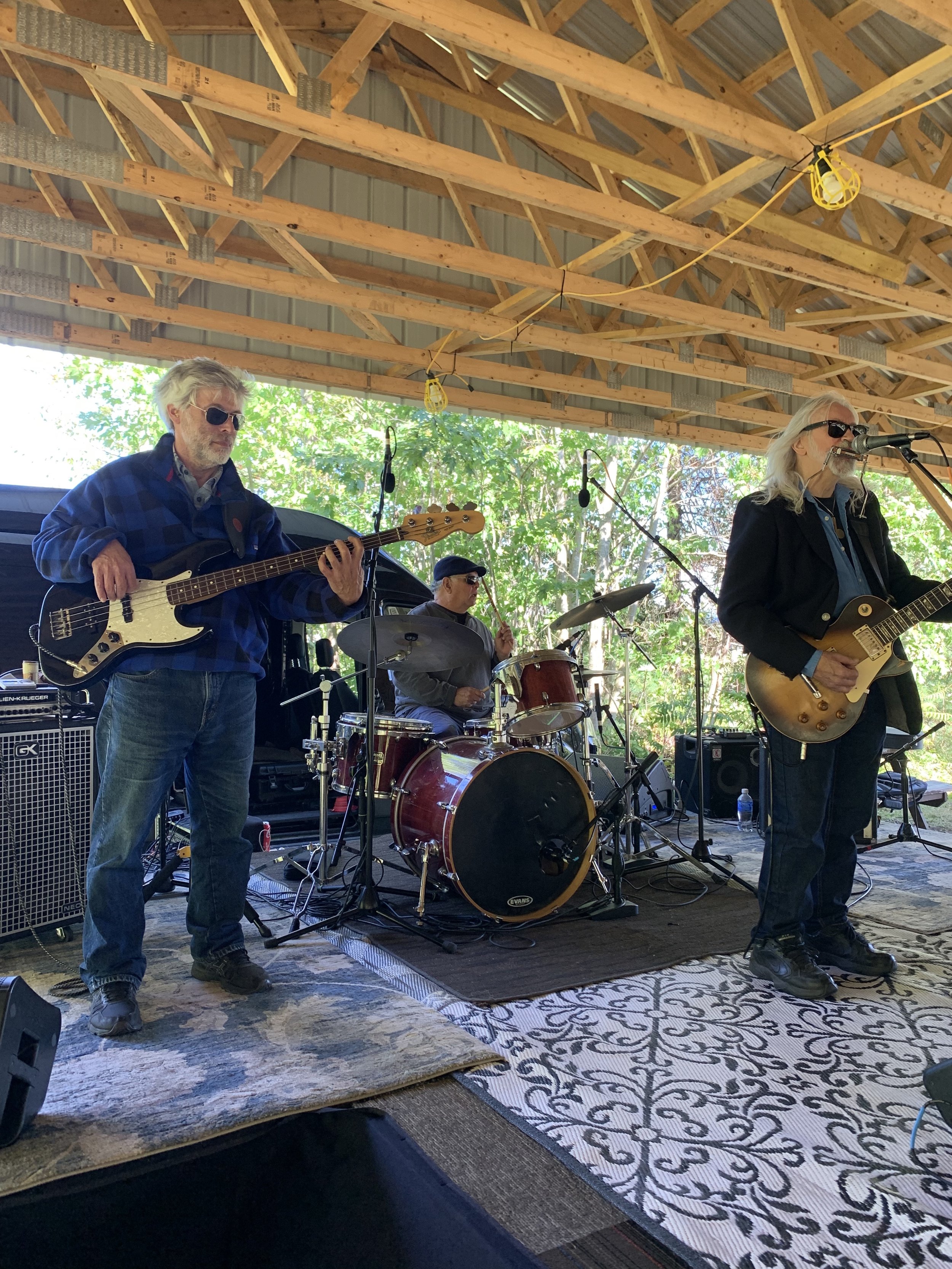Mad Pride: Advocates march for mental health
South Burlington resident Chris Hansen helps lead the Mad Pride March on July 16 in Burlington.
The Mad Pride March, a celebration of people who’ve struggled with mental health issues and traditional treatment services, returned to Vermont this summer after the COVID-19 pandemic turned mental health advocacy virtual.
“In a lot of ways, this is the first time in a while folks are actually coming together in person to see one another and to really bring awareness around this movement,” said South Burlington native Chris Nial, who attended the march July 16 and works as a team lead at Pathways Vermont Community Center.
The march, organized by the Poultney-based group Mad Freedom, seeks to bring attention to people who use or have used psychiatric services and to empower people labeled mentally ill to find pride in their existence. It calls for alternative care for those with mental health challenges, such as peer support methods like those used in Alcoholics Anonymous.
The event is an offshoot of a national movement to reclaim “madness” and counter dehumanizing stigmas against people who face challenges in mental and emotional health.
Vermont’s first Mad Pride March took place in Montpellier in 2016 and was held in subsequent years in Montpelier or Brattleboro until the pandemic put the march on hiatus in 2020.
Its return this year was met by a lively crowd of onlookers and dozens of supporters.
“Talking about Mad Pride is about talking about being proud of who we are and our diversity,” Chris Hansen, co-director of the International Training Organization for Intentional Peer Support, said.
Hansen lives in South Burlington and works with people looking for alternatives to traditional mental health services. She is originally from New Zealand where she experienced hardships in psychiatric inpatient services first hand.
“The thing that inspired me was actually not the people who were treating me, but my fellow inpatients,” Hansen said. “If we were advocating for things like abolition of forced treatment, we needed to also be working on creating practices that work or ways of being with one another that enable that not to happen.”
Both Intentional Peer Support and Pathways Vermont, the group Nial works with, focus on finding those alternative mental health supports.
“Even the evolution of the DSM (Diagnostic and Statistical Manual of Mental Disorders) has changed over time,” Nial said, referring to the standard guide for U.S. mental health professionals. “It created these different labels, diagnoses and ways the public thinks about mental health and how it operates.”
The traditional model of mental health services isn’t serving folks as well as it could be, Nial said. Advocates say the system is transactional rather than therapeutic and tries to move patients in and out as quickly as possible.
Nial graduated from South Burlington High School in 2006 and got a master’s degree in higher education from the University of Vermont, and he has worked with kids in after-school programs for several years. Shortly before the pandemic hit, he experienced his first mental health episode and became interested in methods of care like peer support.
His engagement with mental health in high school was limited — he found community through choir and track.
Clara Margulius, a rising senior at South Burlington High, has had a different experience.
“Mental health is a super important topic and has been for a long time,” said Margulius, who missed the march but supports the movement behind it. “It’s definitely prevalent in the school community. It’s all around us.”
At Margulius’ school, a mental health officer trains students to help struggling peers and point them toward mental health supports. They wear green bandanas on their backpacks so other students recognize them.
Margulius is one of those who helps her peers.
“I have resources that I can direct people to when needed, but there isn’t really a direct path through the school,” she added.
Hansen, Nial and Margulius have two things in common: A connection to South Burlington and their work to strengthen peer-support resources as an alternative to traditional psychiatric models.
“Mental health resources here and everywhere are really stretched,” Hansen said. “Things have to be really bad for people to get seen. Often, it’s the resources that are the quickest and cheapest, which is often the biochemical model: giving people medication and saying go away.”
The term madness, a historical label for people facing distress, often alienated people from society.
What did “mad” mean to those at the march?
“There is so much suffering happening in our world, so many things to be concerned with,” Nial said. “The concept of madness is recognizing the realities we see around us and validating the experiences and responses we have.”
At the heart of Mad Pride, Hansen said, is the recognition of everything that makes a person who they are.
“To see all of us in all of our glory, our chaos, our pain, our despair, our brilliance, because we may be on the outer edges of the bell curve, but we are a part of that broader community,” she said. “Silencing that means we lose the heart and soul of life. The people who get defined as crazy are often the artists, the feelers, the healers and the innovators who create enough chaos to allow change.”





